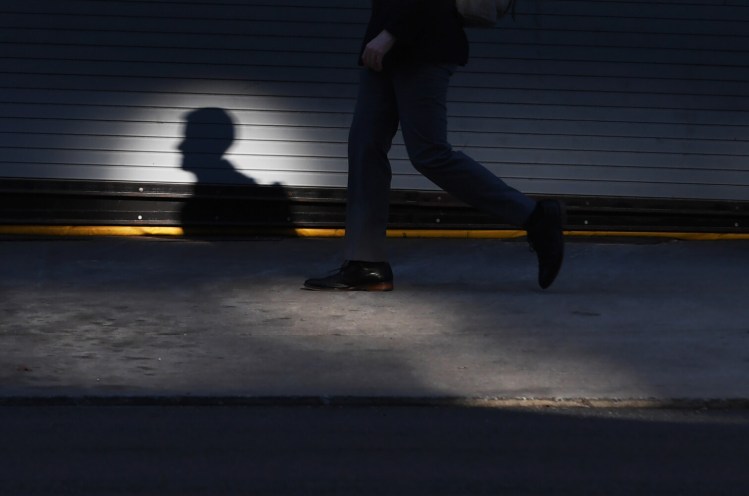Nearly half the people in the U.S. say the coronavirus crisis is harming their mental health, according to a survey published Thursday that demonstrates how the COVID-19 pandemic has escalated into a nationwide psychological trauma.
The tracking poll by the Kaiser Family Foundation, conducted March 25 to 30, found that 45 percent of adults say the pandemic has affected their mental health, and 19 percent say it has had a “major impact.” The rates are slightly higher among women, Hispanic adults and black adults, the survey found.
The poll makes one thing clear: If you’re scared, anxious, depressed, struggling to sleep through the night, or just on edge, you’re not alone.
“It’s a huge number,” Kathy HoganBruen, a Washington clinical psychologist specializing in anxiety disorders, said in response to the poll results. But she added, “It’s not surprising given all the other huge numbers surrounding the pandemic in terms of joblessness, and social distancing, which can equal social isolation. And people dying. People getting sick … All of these big numbers are going to have an outsized impact on our mental health collectively.”
Mental health experts say it’s normal for people to be anxious and worried amid a highly disruptive health emergency that’s shot through with uncertainties.
“Given the circumstances, feeling anxious is part of a normal response to what’s going on,” Joshua Gordon, director of the National Institute of Mental Health, after reviewing the poll numbers Thursday.
He suggested some coping mechanisms. A simple one: Write down your fears, either on a piece of paper or on a computer.
“Just the act of writing them down and stepping away from them can really help you, number one, crystallize what your concerns are, and then number two, leave them behind on the paper or the computer file” Gordon said.
“Another way, of course, is to communicate them to another caring person. In sharing our fears, that has a number of effects. You often learn that that caring person also has those fears and worries,” he said.
HoganBruen encouraged people to try to cut down on negative behaviors, such as excessive alcohol consumption or overeating, and to focus on coping skills that have worked in the past.
“Think about what makes you feel better, what helps improve your mental health, and how you can do that with such limited resources right now. Think about social support – how to access friends and family online, to reach out to people, and develop new communities if you didn’t have that before. How to get exercise,” she said.
Joshua Morganstein, chair of the American Psychiatric Association’s Committee on the Psychiatric Dimensions of Disaster, echoed Gordon’s view that it’s understandable for people to feel a sense of stress in an event like this.
“It’s also important to remember that the vast majority of people, including all of us who are experiencing difficulties along the way, will ultimately do well,” Morganstein said. “Finding and sharing creative solutions to the problems people are facing, taking care of ourselves and our families in the best way we are able, and staying connected to one another will remind us we are in this together and help us get through this difficult time.”
The new poll covers many topics related to the coronavirus and is not a diagnostic tool for surveying mental health. A feeling of anxiety meets the criteria for a disorder when it interferes with normal functioning, Gordon said, such as when “it prevents people from being able to go out to the store when they need to buy groceries, or clean their home, or get the mail, or something like that.”
The Kaiser Family Foundation poll also captures the many worries that people have. Of the respondents, 57 percent said they’re worried they could be exposed to the virus because they can’t afford to miss work and can’t stay home. That’s up from 35 percent two weeks earlier.
Fear of infection has dropped slightly. Two weeks ago, 62 percent of respondents said they were worried someone in their family will get sick with the virus, and that declined to 53 percent – a possible sign that people see the nationwide effort in social distancing as lowering their household risk.
Scott Clement and Emily Guskin contributed to this report.
Send questions/comments to the editors.


